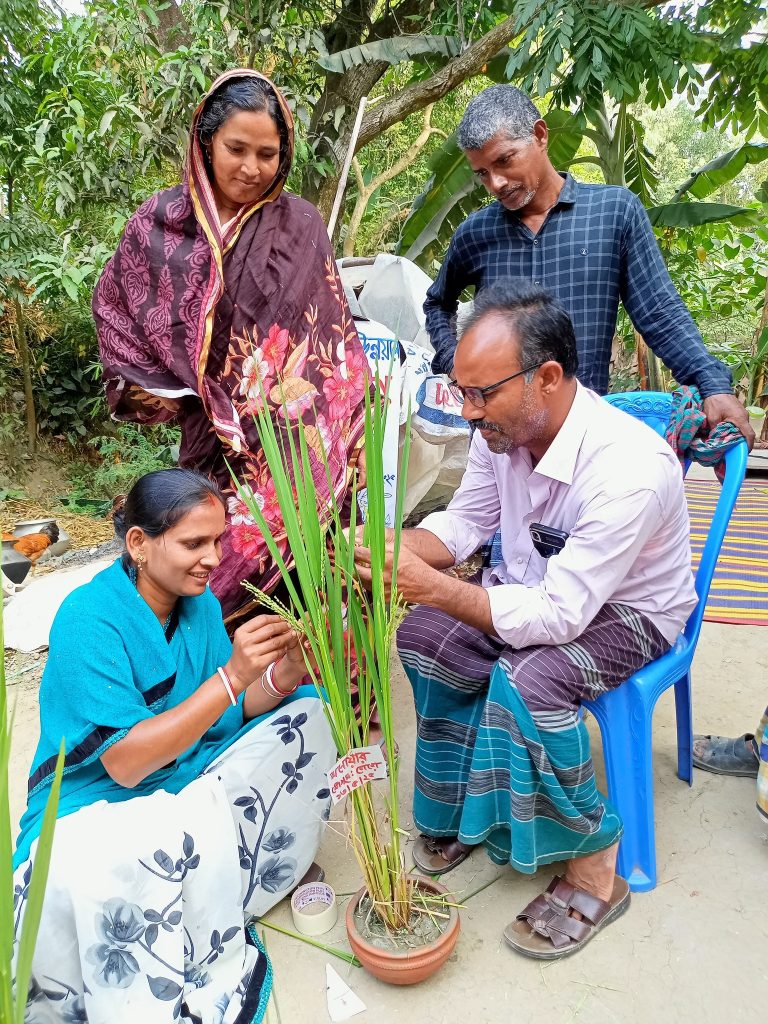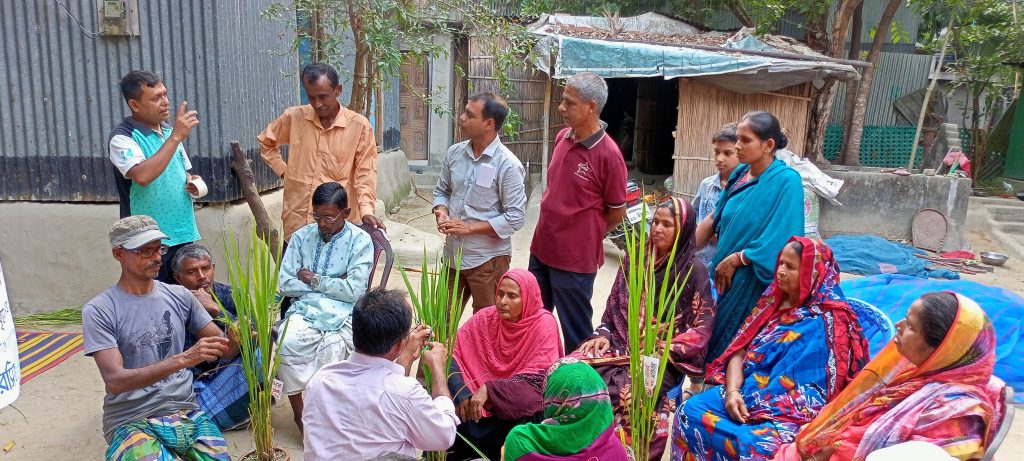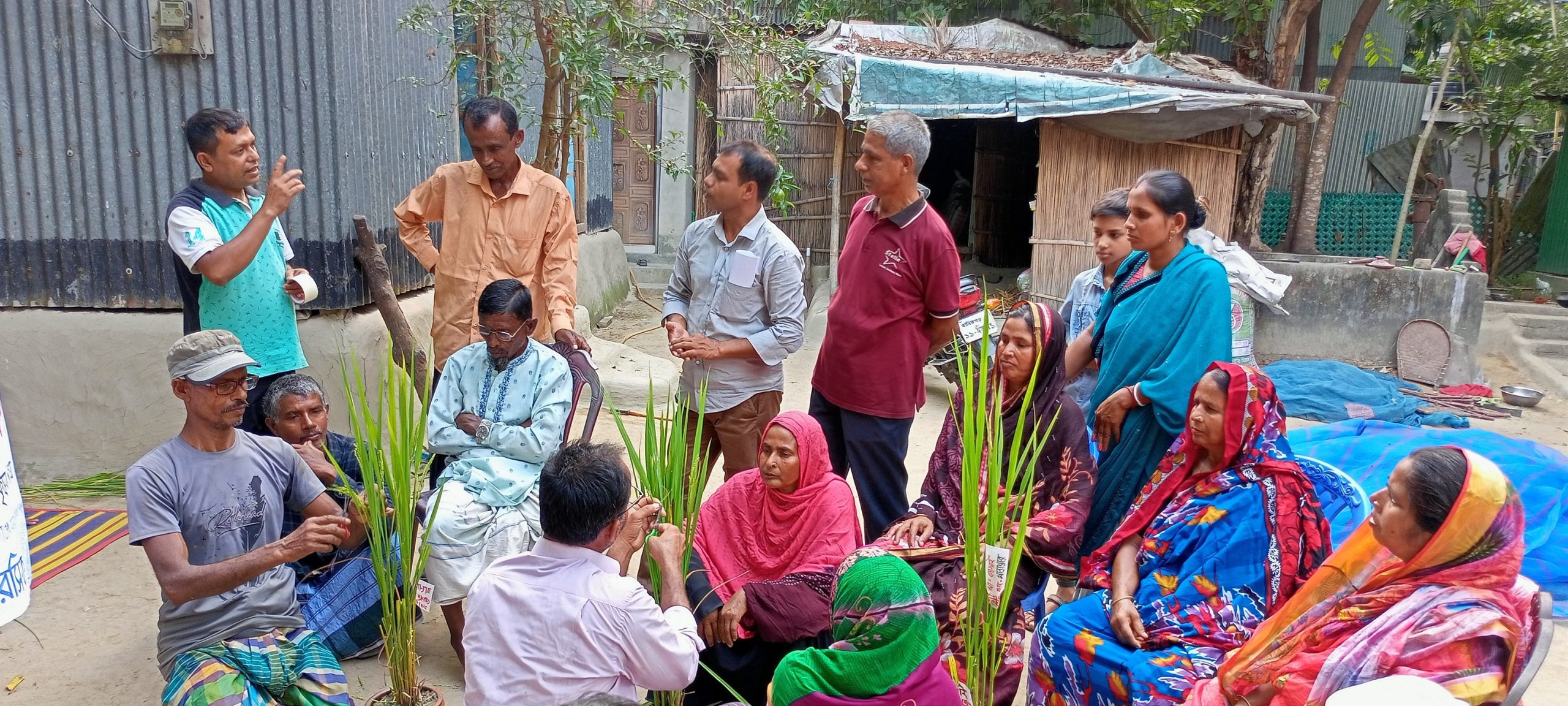Subir Kumar Sarker, from Manikgonj
Due to its low-lying geographical nature, Manikganj farmers frequently face various challenges in crop cultivation caused by natural adversities. Seasonal monsoons bring heavy fog, extreme temperatures, droughts, and excessive rainfall, all of which severely affect agricultural production. In response, farmers have been striving to cultivate climate-resilient and locally adapted crops.
Recently, a training session on rice breeding for the development of suitable Boro season rice varieties was organized by the Dhalai Farmers’ Association in Nabagram Union of Manikganj Sadar, with support from BARCIK. The participating farmers shared their cultivation experiences, acquired knowledge, and exchanged relevant information with one another during the training.

Experienced farmer Md. Monowar Hossain played a significant role in guiding the training process aimed at developing improved rice varieties for the Boro season. Sentu Mia from Dhalai village, said, “Through breeding, we are trying to develop rice varieties that are more suitable for our area. We need varieties that are better than the ones we currently have, drought-tolerant, require less water, yield more, and are less vulnerable to pest attacks. We are breeding such rice to reduce production costs and improve resilience. We are working sincerely and hoping for success.”
Farmer Md. Ainal from Nali Union said, “In our area, rice is planted late because we cultivate mustard beforehand during the Boro season. As a result, yields are lower. If we can develop location-specific rice varieties, it will benefit farmers. Breeding can help improve local varieties, and we will be able to produce more with less cost. Seeing the hands-on breeding process has inspired us, and we intend to implement it in our area in the future.”

BARCIK’s regional coordinator in Manikganj, Bimal Roy, said, “Through farmer-level breeding, it is possible to improve local rice varieties. Farmers will then have access to rice varieties that are better suited to their specific environments.”
Program Officer Satyaranjan Saha noted, “When experienced farmers engage in breeding activities, it not only fosters interest among other farmers but also promotes sustainable agricultural practices. With the active participation of local farmer groups, rice cultivation will become more diverse and cost-effective.”

